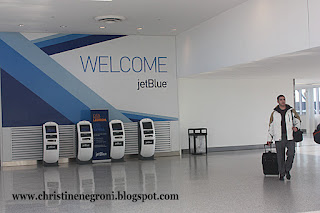What "Is" is When It Comes to Foreign Ownership and US Airlines
Published by Julia Volkovah under airlines on 5:38 PMIn 1998, when asked during his impeachment trial if he was in a relationship with White House intern Monica Lewinsky, then-President Clinton famously parsed, "It depends on what the meaning of the world 'is' is." The same sort of some-see-it-blurry line exists when talking about the rules preventing American commercial airlines from foreign ownership.
With the purchase by Asia Fountain Investment and seven other associated entities of 24.4 million shares of AMR, a foreign interest now owns 7.3% of the parent of American Airlines, a spokesman for American Airlines confirmed today.
With the purchase by Asia Fountain Investment and seven other associated entities of 24.4 million shares of AMR, a foreign interest now owns 7.3% of the parent of American Airlines, a spokesman for American Airlines confirmed today.
This isn't the first time big foreign investment dollars got sucked into the engines of the Dallas-based airline. In 2006, the Iceland investment company FLGroup, bought nearly as many shares, held them for a little over a year and then sold nearly all of them but not before griping about the opacity of AMR in its individual business units.
American is not alone in accepting the help of strangers. Bob Herbst of airlinefinancials.com, credits the German flag carrier Lufthansa with pulling JetBlue's fat out of the fire back in 2007, by investing $300 million in the then-struggling New York airline.
Still, as airlines around the world swap shares and make alliances, the Federal Aviation Act restricts ownership and control of domestic airlines to United States citizens. Just what "ownership and control" means in real terms has been interpreted as 75% of voting interest and two-thirds of the board of directors and mangers must be Americans.
How well that works is illustrated by Virgin America's clever routing through the regulations in order to become an American-owned airline despite it being a part of the empire of British knight, Sir Richard Branson. (Read Lori Ranson's head-spinning account of how that was accomplished, here.)
"Airlines are the only businesses that have these restrictions," Bob Herbst said of the federal rules in a phone call today. In the next three or four years he predicts "things are going to change."
The question for the U.S. carriers is whether that change will come soon enough. While the past few years have been a troubled time for U.S. airlines, the growth of some international carriers has been nothing short of spectacular. Fueled by an enlarged middle class and an acquired taste for travel, airlines are in a boom period in China, India, Southeast Asia, the Middle East and Brazil. Airplane manufacturers from Airbus to Boeing, from Bombardier to Embraer are churning out airplanes as fast as they can tighten the final bolt.
In fact, according to the International Air Transport Association, when it comes market capitalization, none of the five biggest airlines in the world are American. Check out China Airlines, Singapore, Cathay Pacific, China Southern and South America's LATAM.
U.S. airlines are left watching the party, creating code-shares and partnership agreements with foreign airlines, and wondering just how adequate a substitute these deals are for the real thing.
"No other industry in the world has such restrictions," the American Airlines communication director Sean Collins told me in an email this evening, echoing the sentiments of Bob Herbst and many others. "The European Union has made changing this law its highest priority in its discussions with the United States. We believe it is time for a serious conversation about this issue in the interest of creating a stronger, more successful global airline industry."
Some of the global players are having a relationship. What is the effect of 53-year old regulations that prevent American airlines from joining in? Perhaps it is time to ask what the definition of "is" is.
"No other industry in the world has such restrictions," the American Airlines communication director Sean Collins told me in an email this evening, echoing the sentiments of Bob Herbst and many others. "The European Union has made changing this law its highest priority in its discussions with the United States. We believe it is time for a serious conversation about this issue in the interest of creating a stronger, more successful global airline industry."
Some of the global players are having a relationship. What is the effect of 53-year old regulations that prevent American airlines from joining in? Perhaps it is time to ask what the definition of "is" is.


